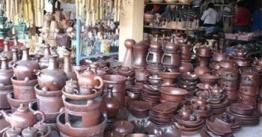You are here
Suggestions

Traveler Tips: Safely and Smoothly Exploring Yogyakarta
Indonesia has made a comeback in terms of cleanliness, medical facilities, and travel. Visitors should not have a medical emergency in Yogyakarta. Be sure to check your health insurance before returning. It is better to have insurance, which will evacuate you if you get sick or seriously injured. Some things to keep in mind are to stay in good health and enjoy the trip.
Please prepare plenty of water or fruit juice to avoid dehydration. Make sure to drink enough water to avoid dehydration, especially in hot weather. You can also consume fruit juice to increase electrolytes. Be careful when choosing where to eat. Make sure to eat at a clean and comfortable restaurant. See the food guide for some suggestions. Try to try street vendors to avoid those who do not serve meat unless you are used to it.
Chemical medicines provide good deals. Pharmacies will usually give prescriptions but the amount may not be the same as what your doctor will prescribe. Treat wounds or burns immediately, and do not risk infection during hot and wet weather. Yogyakarta is relatively safe from protozoan infections, but it is still advisable to maintain personal and food hygiene. For additional information, there is a list of hospitals and clinics in the Emergency Data section. Additional information on health issues is also available from the Center for Disease Control and Prevention.
About Currency
Most major currencies are in cash or traveler's checks, simply converted to the local currency, which is Indonesian currency. The exchange rate at hotels is usually less favorable than elsewhere. An alternative is to go to a branch of one of the local banks, but even then, there are plenty of official money changers available. Be careful when exchanging money from street vendors, as the risk of fraud is quite high. It is better to do so at an official and trusted place.
Some things require basic cognitive processing. First, the exchange rate posted on the door is sometimes for $100 bills. Smaller denominations are given a less favorable exchange rate. Next, verify the exchange rate calculation and calculate the modification before allowing the counter. If a money changer checks you, you will probably get your passport as identification and many money changers will not accept notes that are already worn or in nearly new condition. Official exchange rates are shown daily in all major newspapers.
Rupiah is available in paper and coin form. Paper denominations: 1,000, 2,000, 5,000, 10,000, 20,000, 50,000, and 100,000. Coin denominations are 100, 500, and 1,000. Just a warning, there are several types of identical denominations and with all the zeros, even those who live here sometimes get confused. ATMs are quite common and therefore those with the VISA or Cirrus logo dispense local currency at the current bank exchange rate. Some have a speed on the screen. Be careful, although you want to be absolutely sure to take your card. Therefore, the card remains in some machines, extra withdrawals are also made without having to re-enter the PIN. Explore the sidebar about credit card exploitation in Yogyakarta
Tipping
Tipping is common in tourist attractions in Yogyakarta, especially in hotels and restaurants. Most hotels and larger restaurants will automatically add a service charge of between 5% and 10% to your bill, which is quite comfortable. Smaller restaurants usually don’t add any extra, considering that waitstaff wages are usually only between US$5.00-10.00 per day.
Waiters and security guards usually get Rp10,000 - Rp20,000 for small to medium sized bags and at least Rp20,000 for a multi-person house trailer. For taxi drivers, miscalculations of up to Rp10,000 or the nearest Rp15,000 (depending on the length of the trip) are common. If you are renting a car for the whole day, it is a good idea to have Rp50,000 - Rp100,000 for each meal and a daily travel tip.
Bargaining
Bargaining is common practice in markets and small shops in Yogyakarta. Feel free to bargain, but do it politely and without being pushy. Some of Yogyakarta's larger retailers are now turning their backs (price tags usually indicate set prices), but dialogue remains the norm among the batik, jewelry, and T-shirt stalls on Malioboro's streets, but don't be rude. There's nothing more annoying these days than seeing a well-dressed traveler trying to squeeze the last 10,000 Indonesian currency units (about US$0.8) out of a merchant.
Copyright © 2026,











